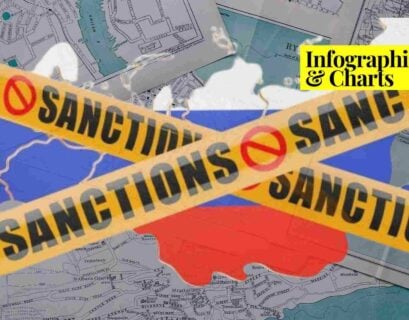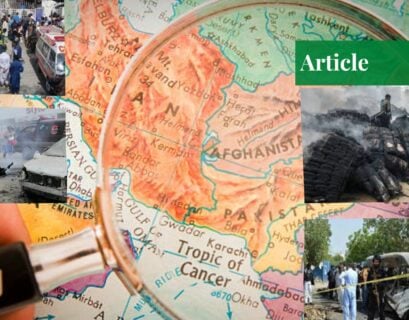Introduction
Vladimir Putin, the president of Russia, declared on March 25 that the nuclear weapons along with a missile system for carrying them would be stationed in Belarus. In an interview with a state-owned Russian news channel on March 25, Russian President Vladimir Putin launched the predictable next information operation to stifle Ukrainian resistance and disrupt Western support for Ukraine as Russian offensives come to an end and Ukraine plans to launch counteroffensives.
According to a study by the Washington-based Institute for the Study of War (ISW), Russia already has long-range nuclear weapons, so placing missiles in Belarus won’t increase its ability to reach more targets. The institution suggested that its real objective may be to terrify Western nations and deter them from offending Moscow by increasing their assistance for Ukraine. The probability of escalation to nuclear war “remains extremely low,” according to analysts at the ISW.
Putin’s declaration might still have a significant impact on Ukraine’s allies even if it does not increase the likelihood of nuclear war or does not intend to deploy the weapons. This is because his nuclear arsenal and threats have the potential to make the West reconsider its support for Ukraine. According to the Belarusian foreign minister, the pressure from the United States and its NATO allies has been unparalleled in recent years, and Belarus must respond.
Response from the International Community
In response to Putin’s action, Ukraine requested that the UN Security Council convene an emergency session. In a tweet, Oleksiy Danilov, the head of Ukraine’s National Security and Defense Council, claimed that “The Kremlin took Belarus as a nuclear hostage.” Putin said Russia would not be handing over control of the weapons to Belarus and compared his plans to the US stationing its weapons in Europe.
Putin’s assertion was challenged by NATO, which argued that Western members uphold their international obligations in full. Lithuania, which shares a border with Belarus, referred to Putin’s remarks as “desperate moves by Putin and Lukashenko to create another wave of tension and destabilization in Europe,”.
According to Lithuania’s Foreign Ministry, further sanctions will be demanded in reaction to Russia’s intentions to station tactical nuclear weapons in Belarus. According to the ministry, “Lithuania will decide how to respond to these militaristic objectives of the Russian and Belarusian regimes together with its Euro-Atlantic partners.”
Moreover, Josep Borrell, the head of foreign affairs for the European Union, asked Belarus not to host Russian nuclear weapons, warning that doing so could result in additional sanctions. However, these threats of sanctions are far less dangerous for Lukashenko than Russia’s guaranteed wrath if he abruptly changes his mind.
Potential Global Outcomes
If Moscow chose to use them, the stationing of tactical nuclear weapons in Belarus would make it simpler and faster for Russian aircraft and missiles to go to prospective targets. Additionally, it would increase Russia’s potential to target several NATO allies in Eastern and Central Europe. However, the strategic nuclear balance in Europe won’t shift despite the deployment of tactical nuclear weapons in Belarus raising the stakes in the political conflict between NATO and Russia.
Belarus’ involvement in this conflict may go unnoticed by peace mediators as long as Belarus limits its services only to deploying weapons and providing a corridor for Russian troops. The Belarusian matter, however, will probably be on any postwar settlement agenda if Belarus receives a full-fledged permanent Russian nuclear site.
Even if discussions about a new European security system take place after Putin and Lukashenko have left office, it will be difficult to ignore the presence of nuclear weapons so near to Kyiv and the capitals of three NATO members. It is now more likely that the West will call for Belarus to demilitarize to at least pre-war levels.
Consequences for Belarus
During the past eighteen months, the Belarusian President has spoken about the deployment of nuclear weapons in his country. He put forth the idea in November 2021, much before the conflict in Ukraine, as a potential retaliation for the stationing of American nuclear weapons in Poland. It’s unlikely that Lukashenko could have predicted that a conflict would soon break out and that a year later Putin would seek to employ it as nuclear blackmail.
While there is growing public opposition to Lukashenko’s regime in Belarus, Putin is often credited with keeping the regime in power. In response, during Russia’s invasion of Ukraine, Lukashenko allowed Russia to station soldiers in Belarus. The more likely scenario is that Minsk was only engaging in routine foreign policy exercises when it allowed Moscow to deploy nuclear weapons in anticipation of potential political and financial backing from Moscow.
Ultimately, it’s difficult to conclude whether Belarus would benefit more or less from Russia’s decision. Since Belarus would essentially obtain a new Russian military post and receive some sort of economic assistance in return, it would undoubtedly enhance its connections to Russia. However, ordinary Belarusians would resist the initiative as according to Chatham House polls conducted last year, 80% of Belarus’ urban population opposes the deployment of nuclear weapons in their nation.
Also, the decision to bring nuclear weapons into Belarus raises the possibility of unrest in the public which can further weaken the regime’s grasp on power, demanding additional Russian intervention or creating instability. It is becoming increasingly clear that Belarus’ future depends on the outcome of a peace agreement between Russia and Ukraine.
It will be utterly difficult for any next government in Minsk to economically and politically separate itself from Russia on its own once Belarus begins hosting Russian nuclear weapons.
If you want to submit your articles, research papers, and book reviews, please check the Submissions page.
The views and opinions expressed in this article/paper are the author’s own and do not necessarily reflect the editorial position of Paradigm Shift.


















